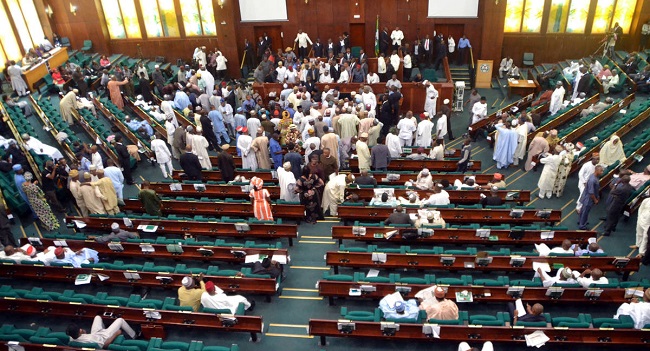Politics
Reps move to increase number of Appeal Court judges from 90 to 150

The Nigerian House of Representatives are on the brink of sanctioning the increase in the number of Appeal Court judges from 90 to 150 nationwide.
This is as the bill seeking the increase has scaled through the second reading at the green chamber of the National Assembly.
Currently, the extant laws provided for 90 justices nationwide, with some of the judicial divisions having only 3 judges, except Abuja and Lagos.
Titled “A Bill for an Act to Amend the Court of Appeal Act, Cap. C36, Laws of the Federation of Nigeria, 2004 to Increase the Number of Justices of the Court and Provide for Appointment of a Minimum of Six Justices in every Judicial Division of the Court for Speedy and Efficient Justice Delivery and to Improve Citizens’ Access to Justice; and for Related Matters (HB. 809)”, it is sponsored by Hon. Onofiok Luke from Akwa Ibom State.
Expressly, the bill is seeking to increase the number of justices of the Court of Appeal in line with current realities; to expedite justice dispensation and eliminate delay in justice delivery; to increase the quality and soundness of judicial decisions by making available more hands in adjudication process at the appellate level; to confer on citizens greater access to justice delivery and dividends of democracy and to decrease the workload on the shoulders of the justices of the appellate court and thereby extend their life expectancy.
Leading the debate during plenary, Hon. Luke said: “The Court of Appeal is the intermediate court between the High Court (including other subordinate courts and tribunals) and the Supreme Court. Established in 1976, the court had only 3 judicial divisions. The divisions of the Court have now grown to 20. Some of the new divisions were commissioned in 2020.
READ ALSO: CJN postpones inauguration of 18 Appeal Court judges, as courts remain closed
“The law perches the maximum number of justices of the Court at 90. This number has become inadequate given the recent creation of the new divisions of the court – Kano, Gombe, Awka, Asaba, etc. There is a high increase in the volumes of cases attended to by the Court, which of course has necessitated the creation of the new divisions. This implies increased workload with fewer hands, which therefore affects quick justice dispensation at the appellate level.
“Furthermore, most of the divisions of the Court do not have up to 6 justices, implying that two panels of the Court cannot sit simultaneously to attend to cases, which therefore stall expeditious and timeous hearing and disposition of cases. As a matter of fact, judicial divisions of the Court with a huge volume of cases like Abuja and Lagos ought to have a minimum of 9 justices so that the divisions can have 3 panels sitting simultaneously. It is necessary to note that it is this same inadequate pool of justices of the Court of Appeal that is drawn to sit in Election Appeal Tribunals, thereby compounding delay in justice delivery.
“Owing to the inadequate number of justices in the Court, cases stay in the docket for an undesirable long period of time”, he said.
Join the conversation
Support Ripples Nigeria, hold up solutions journalism
Balanced, fearless journalism driven by data comes at huge financial costs.
As a media platform, we hold leadership accountable and will not trade the right to press freedom and free speech for a piece of cake.
If you like what we do, and are ready to uphold solutions journalism, kindly donate to the Ripples Nigeria cause.
Your support would help to ensure that citizens and institutions continue to have free access to credible and reliable information for societal development.
























